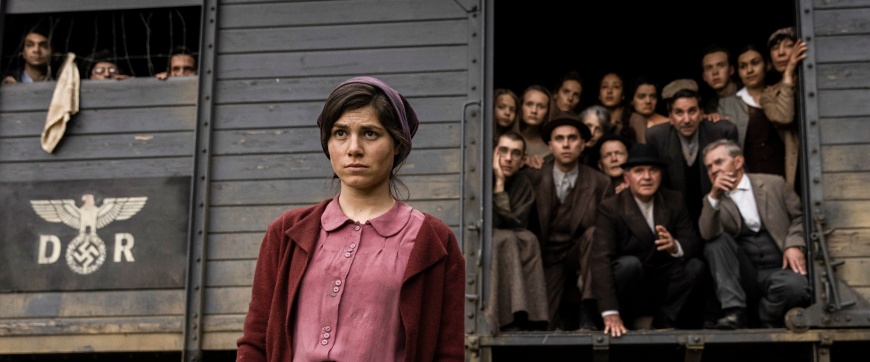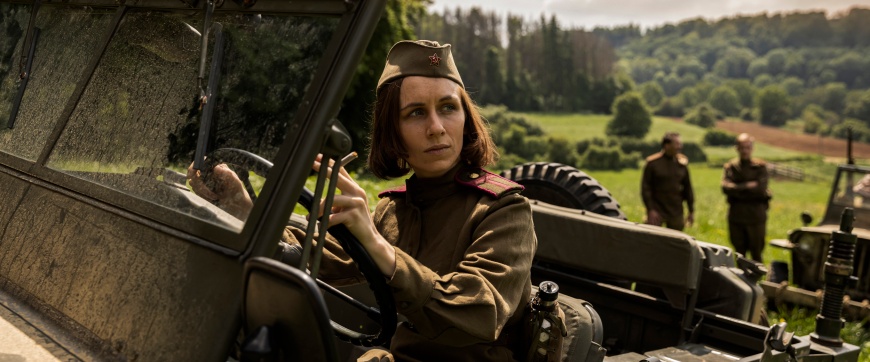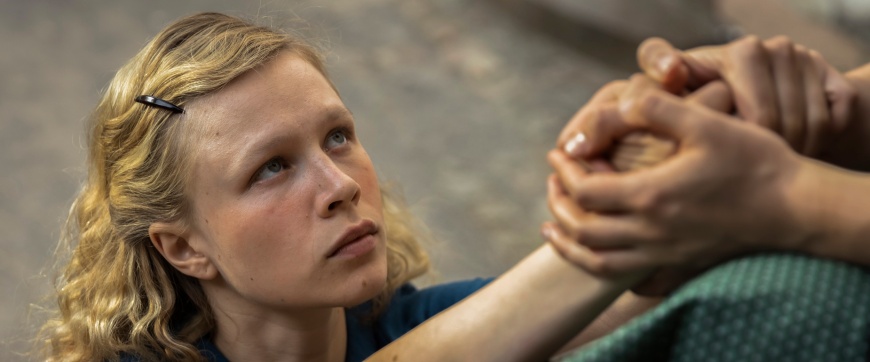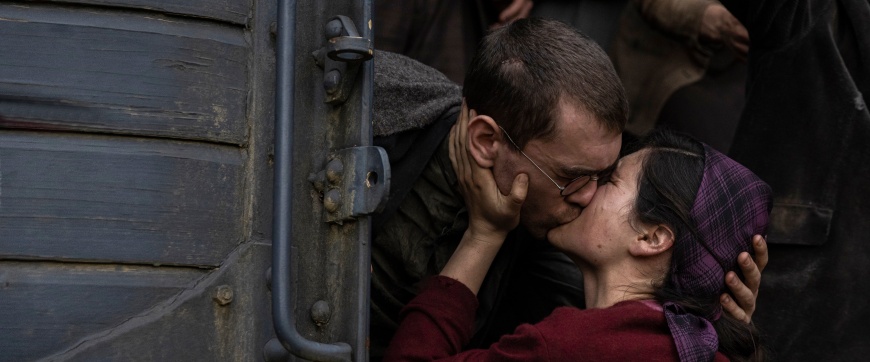Producer's note
Hanneke Niens and Hans de Wolf about "Lost Transport":
The first time we worked with Dutch filmmaker Saskia Diesing was on her debut feature "Nena," a co-production with Germany that earned her the Special Mention Jury Award at the 2015 Berlinale. Her second feature film "Craving," which premiered at the 2018 International Film Festival Rotterdam, was also produced by KeyFilm. With "Lost Transport" we take another step together and created an international film for an international audience.
"Lost Transport" is a historical film based on true events. It is about a train with thousands of Jewish prisoners that travels from Bergen-Belsen across Germany in the spring of 1945 and gets stranded near the village of Tröbitz. The locomotive is uncoupled, the German soldiers flee, and the prisoners are left behind. It turns out that the war is (almost) over. Russian soldiers of the Red Army advance from the east and occupy Tröbitz. The Russians force the German population to offer shelter, food and help to the concentration camp survivors from the train. Together with the women and girls (the men and boys are still fighting at the front), they organize a field hospital to care for those who have contracted typhus from the inhumane conditions of concentration camp life.
Former archenemies must come to terms with each other in the tiny German village. The three young women around whom the plot revolves are also initially hostile to each other: the Jewish-Dutch woman Simone (29), the German teenager Winnie (17) and the Russian sniper Vera (21). As the story progresses, these women gradually become closer, begin to work together and care for each other. Three women who, after the ravages of war, thanks to the support of each other, take a first step towards a future in which compassion overcomes revenge, anger and mistrust.
This is no ordinary war drama, but a particular perspective on an exceptional situation that puts the resilience of three young women to the test. Three very different women who slowly begin to recognize the humanity in each other.
In most war films, the focus is on the men. What is special and unique about "Lost Transport" is the genuinely female perspective: the focus is on three young women. In addition, both the writer/director and several of the producers are women. This will ensure a hitherto unknown view of the events of that time.
We were very excited to master the shooting with a large international cast and crew, new and proven talent, as well as a renewed collaboration with the producers of Amou Fou Luxembourg and Coin Film!writing the history books.







